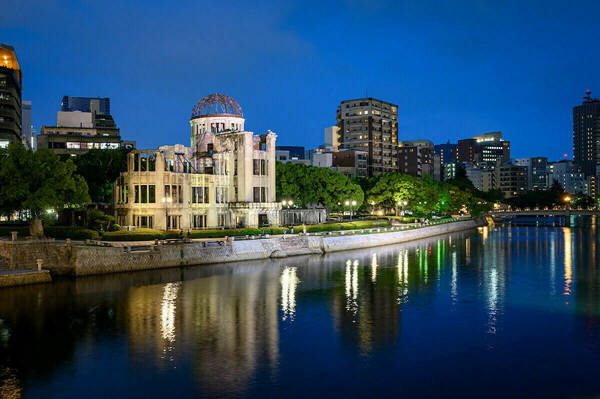Law School hosts second annual Notre Dame Religious Liberty Summit in Rome
The world’s leading defenders of religious freedom will gather in Rome July 20-22 for the second annual Notre Dame Religious Liberty Summit, hosted by the Law School’s Religious Liberty Initiative.
The summit’s theme is Dignitatis humanae — the Second Vatican Council’s declaration on religious freedom that spelled out the Catholic Church’s support for the protection of religious liberty and set the ground rules for how the Church would relate to secular states.
The inaugural Notre Dame Religious Liberty Summit in 2021 was held on the University of Notre Dame’s campus. This year’s summit in Rome underscores the Religious Liberty Initiative’s global reach.
“Religious liberty is a fundamental human right, and the protection of religious liberty is a global issue,” said G. Marcus Cole, the Joseph A. Matson Dean and Professor of Law at Notre Dame Law School.
“Everyone around the world has the God-given right to live their lives as their beliefs require — proudly and without fear,” Cole said. “The Religious Liberty Initiative at Notre Dame Law School has the potential to change the world by promoting and defending freedom of conscience for people and institutions around the world.”
Established by Cole in 2020, the Notre Dame Law School Religious Liberty Initiative promotes and defends religious freedom for people of all faiths through scholarship, events and the Law School’s Religious Liberty Clinic. The initiative protects the freedom of individuals to hold religious beliefs as well as their right to exercise and express those beliefs and to live according to them.
The Religious Liberty Initiative has represented individuals and organizations from an array of faith traditions to defend the right to religious worship, to preserve sacred lands from destruction, to promote the freedom to select religious ministers and to prevent discrimination against religious schools and families.
The summit will stimulate conversations among scholars, advocates and religious leaders about the future of religious liberty in the United States and around the world.
Although in-person attendance at the summit is by invitation only, the schedule will include several panel discussions and speeches that will be recorded and available for the public to view on Notre Dame Law School’s YouTube channel.
The 2022 Notre Dame Prize for Religious Liberty will be presented to Mary Ann Glendon, the Learned Hand Professor of Law, emerita, at Harvard Law School and former U.S. ambassador to the Holy See. Glendon is being honored for groundbreaking legal scholarship as well as her distinguished service to the United States and the Catholic Church — all of which have had a global impact by affirming religious freedom as a fundamental human right.
Steven Smith, professor of law and co-executive director of the Institute for Law and Religion at the University of San Diego School of Law, will receive the Religious Liberty Initiative’s 2022 Award for Scholarship.
Another highlight of the summit will be the keynote discussion on July 22 between two of the world’s foremost philosophers and public intellectuals — Cornel West of Union Theological Seminary and Robert P. George of Princeton University.
The events will be recorded at the Religious Liberty Summit and posted on the Law School’s YouTube channel for the public to view.
Learn more about Notre Dame Law School’s Religious Liberty Initiative at law.nd.edu/RLI.
Originally published by at law.nd.edu on July 11.
Latest International
- University of Notre Dame joins the Global Coalition of Ukrainian StudiesThe University of Notre Dame has joined the Global Coalition of Ukrainian Studies after signing a memorandum of cooperation, formalized Sept. 24, at the Ukrainian Institute of America in New York City. Notre Dame joined four other American institutions that were also publicly welcomed to the coalition at this event: Arizona State University, Columbia University, Manor College and the Shevchenko Scientific Society.
- Statement from University President Rev. Robert A. Dowd, C.S.C., on the anniversary of the atomic bombing of HiroshimaToday, on the anniversary of the bombing of Hiroshima, Father Dowd offered remarks at the Elisabeth University of Music as a guest of its president, Yuji Kawano, and Bishop Alexis Mitsuru Shirahama of Hiroshima. Father Dowd focused on the role that universities can play in addressing the current nuclear predicament and the wider challenges of peace in today’s world.
- Vatican honors Martin and Carmel Naughton with papal awardThe late Pope Francis, in one of his last acts, conferred the honour of the Order of Saint Gregory the Great upon Carmel and Martin Naughton, Trustee Emeritus of the University of Notre Dame. The papal honor is in recognition of the Naughtons’ outstanding philanthropy in the areas of education and the arts, particularly in the provision of philanthropic support and scholarships to Catholic education at the University of Notre Dame and Kylemore Abbey, and in their transformative contributions to higher education in Ireland.
- Prioritizing prenatal care may decrease low birth weight outcomes in The Gambia, Notre Dame research findsA new study co-authored by University of Notre Dame researchers highlights the importance of prenatal care for improving the health of mothers and newborns, providing evidence that can inform policy.
- Navigating the waters of peace: Researchers address challenges, opportunities in implementation of Colombia's Peace AgreementNearly half of the commitments outlined in Colombia's historic peace accord face significant challenges and may not happen in time unless policymakers make several key interventions, warns a new report from Notre Dame's Peace Accords Matrix. The report offers a blueprint to salvage an accord that has lagged behind its implementation deadlines, putting its legacy at risk. It highlights timely fixes that can strengthen the agreement.
- Partial peace deals may facilitate comprehensive accords, offering roadmap for policymakers, practitionersPartial peace agreements — deals that address targeted issues on the way to larger comprehensive accords — could provide a blueprint for peacebuilding policymakers and practitioners, according to new University of Notre Dame research.













